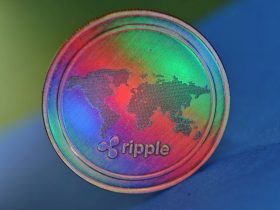The latest EU proposals on how crypto companies and regulators should apply the law in practice cover crypto asset companies from outside the EU that want to offer services to EU customers directly, rather than from a physical base inside the bloc
Crypto companies based outside the European Union will only be able to directly serve customers within the bloc under very limited conditions to avoid unfair competition, the European Securities and Markets Authority (ESMA) proposed on Monday.
The European Union approved the world’s first comprehensive rules for crypto markets last year, known as MiCA, a groundbreaking move in an online sector where national borders have been hard to police.
The latest EU proposals on how crypto companies and regulators should apply the law in practice cover crypto asset companies from outside the European Union that want to offer services to EU customers directly, rather than from a physical base inside the bloc.
The proposed guidance confirms ESMA’s previous message that the provision of crypto-asset services by a third-country company is limited under MiCA to cases where the client is the exclusive initiator of the service, European Securities and Markets Authority said in a statement.
Initiation by the customer is known as ‘reverse solicitation’ and a concept seen in other EU financial laws that the bloc’s policymakers have tightened up on, putting pressure on foreign companies to open a branch or subsidiary in the European Union.
This exemption should be understood as very narrowly framed and must be regarded as the exception, it added.
The proposal is out to public consultation until the end of April, with a final text due by the end of this year at the latest.
ESMA said that it and national regulators in the European Union would take “all necessary measures to actively protect EU-based investors and MiCA-compliant crypto-asset service providers from undue incursions by non-EU and non-MiCA compliant entities.”
Actual solicitation of business in the European Union by a third country company, which would include undertaking a marketing campaign in the 27-country bloc, is prohibited, ESMA added.
A non-EU company could not rely on the exemption to subsequently offer further services, unless in the same context as the original transaction, it said.









